The four masterpieces of Chinese classical novels refer to The Dream of Red Mansions,Water Margin,Romance of the Three Kingdoms and Journey to the West. The four classical masterpieces are the classic works in the history of Chinese literature. They are the precious cultural heritage of the world.
The status of these four masterpieces in the history of Chinese literature is hard to distinguish. They all have a high level of literature and artistic achievements. The meticulous depiction and the profound thoughts contained in them have been praised by readers of all ages. The stories, scenes and characters in them have deeply influenced the Chinese people's ideology and value orientation. It can be said that there are four great monuments in the history of Chinese literature.
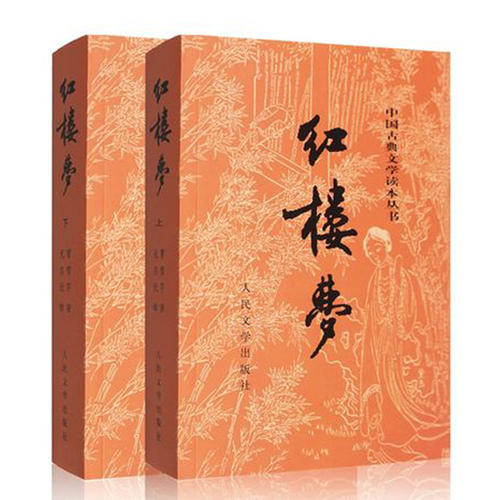
Xueqin Cao, the author of this book, was born in Nanjing on May 28, 1715, and died on February 12, 1763. He was born in a famous family. In his early years, he experienced a period of rich and lucky life in Jiangning weaving Mansion, Nanjing. In the sixth year of Yongzheng reign (1728) of Qing dynasty, Cao's house was searched and property was confiscated. Cao moved back to his old house in Beijing with his family. Later, he moved to the western suburbs of Beijing and made a living by selling calligraphy and painting and helping friends. After the turning point in his life, Cao was deeply aware of the world and had a more sober and profound understanding of the feudal society. With the broad-minded nature, a wide range of hobbies and perseverance, Cao finally created a very ideological, artistic great work - The Dream of Red Mansions. In his old age, after his young son died, he was bedridden by excessive grief. On the new year's Eve (February 12) of Qianlong 28th years (1763), he died because of poverty and disease without medical treatment.
The author described the rise and fall of Jia, Shi, Wang and Xue as the background, and wrote from the perspective of Baoyu Jia, the rich and noble son. The story set the love and marriage tragedy of Baoyu Jia, Daiyu Lin and Baochai Xue as the mainline and depicted the life of a group of boudoir beauties whose behavior and knowledge were above the needs, and showed the real beauty of human nature and tragedy. It can be said that it showed the beauty of women from all angles of the ancient society. At the same time, The Dream of Red Mansions is also recognized as the pinnacle of Chinese classical novels, the encyclopedia of Chinese feudal society and the epitome of traditional culture. The novel is encouraged by the theme of "talking about feelings and recording the facts". It only follows the trace according to its own events and feelings. It gets rid of the old set and has made extraordinary artistic achievements. The special style of writing "the truth is hidden, and the false words and village words" has opened up the minds of the later generations of readers. Many people have speculated about it for a long time. Since the 20th century, due to the extraordinary artistic achievements and rich and profound ideological details of the novel, the academic circles have produced the special knowledge as the research object, which is called Hong Fan.
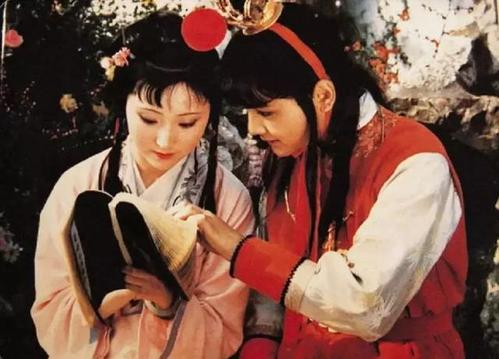
The important characters in the novel included Baoyu Jia and Daiyu Lin. Baoyu was the second son of Zheng Jia and Mrs. Wang of Rongguo palace. He was born with the Tongling jade, so he was named Baoyu Jia. He wandered in the gentle and rich countryside and was close to his sisters and maids. He and Daiyu Lin were intimate friends and developed into pure love in the world. He paid more attention to emotion than ceremony, and made many affectionate men as his friends. He liked the temperament literature of poems, but hated the Four Books and Eight-legged Essay, and criticized Cheng Zhu Neo Confucianism. But in the end, he married Baochai Xue in a muddle-headed way under the family arrangement, which made his true lover Daiyu Lin die of tears. After the pain of losing all his family, he became crazier and crazier. In order to revive his family as soon as possible, he gave up precipice and followed a monk and went back to Qinggeng peak. It’s said that it's like a dream at the end and everything was empty.
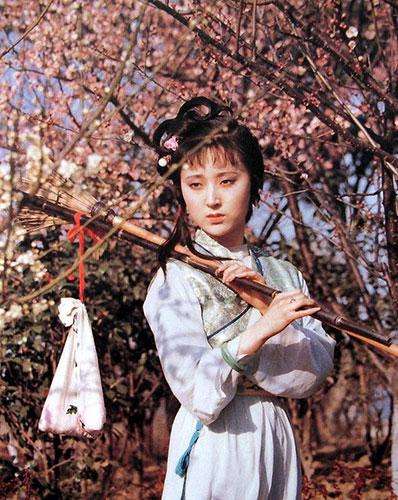
Daiyu Lin was one of the twelve maidens in Jinling. She was reincarnated by the crimson pearl fairy grass on the Lingjiang river bank in the West. Her mother was Min Jia, the youngest daughter of Mansion Rong and her father was Ruhai Lin, the censor of Yangzhou Salt Patrol. She was born with a beautiful appearance and poetic talent. She was a classic female image full of aura in ancient literary works. Her parents love her as a treasure. She went to school at the age of 5 and her mother died early at her age of 6 or 7. Afterward she was enlightened by Yucun Jia at the age of 10. Her grandmother Jia loved Daiyu as much as Min Jia. When she was 10 years old, she was brought up and educated by her grandmother’s side, living and sleeping just like Baoyu. At the age of 11, her father died. From then on, she lived in Jia's house and gradually became aloof. Daiyu Lin and Baoyu Jia were in love with each other and Daiyu finally died in tears on the wedding night of Baoyu and Baochai.
There is a famous fragment called "Dai Yu burying flowers" in The Dream of Red Mansion. Daiyu Lin cherished flowers most, and felt that they were the cleanest if burying in the earth after they fell. This showed that she had a unique view on beauty. She also wrote a poem about burying flowers, which was one of the most beautiful poems in the novel. Baoyu Jia and Daiyu Lin had a dialogue when they buried the flowers, which became a masterpiece to remove misunderstanding between lovers.
The author of this book, Naian Shi (about 1296-1370), was born in Dafeng, Jiangsu Province. He lived in seclusion in Xinghua to avoid the war and then wrote the book Water Margin. In addition, he was also good at poetry and music, but the works were rarely spread. In order to avoid being recruited by the Ming Dynasty, Naian Shi lived in Huai'an and then died of illness. He was buried at the age of 75.
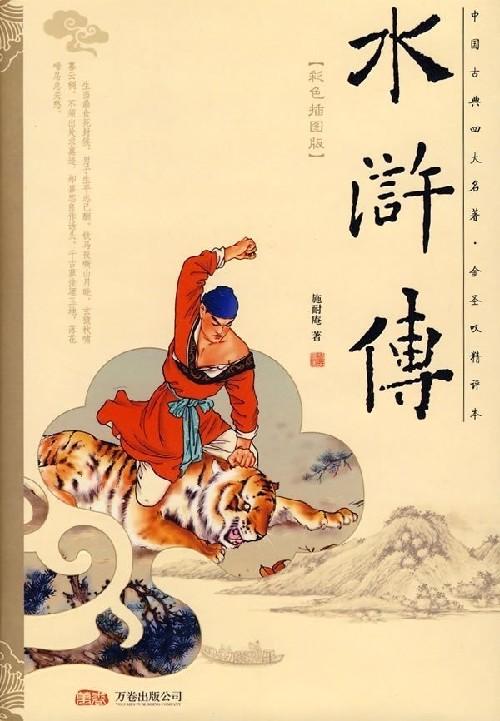
Water Margin is a long heroic legend and one of the representative works of ancient Chinese novels. It is the story of the Jiang Song uprising, which is based on the long-term spread of folk literature. Taking the peasant uprising led by Jiang Song as the main theme, the book artistically reproduced the tragic picture of ancient Chinese people's resistance to oppression and heroic struggle. The work fully exposed the corruption and brutality of the feudal ruling class, and exposed the sharp opposition of social contradictions and the cruel reality of "officials forced the people to revolt" at that time, and successfully created a number of heroes such as Zhishen Lu, Kui Li, Song Wu, Chong Lin, Xiaoqi Ruan. The plot of the novel is tortuous; the language is vivid and the character is distinct. It has high artistic achievement. However, the work praised and beautified Jiang Song, and advocated "loyalty" and "acting for heaven", which showed serious ideological limitations. After the publication of the outlaws of the marsh, it had a great influence on society and became a model of Chinese novel creation in the future. In addition, "outlaws of the marsh" had also been translated into a variety of languages, and spread in many foreign countries.
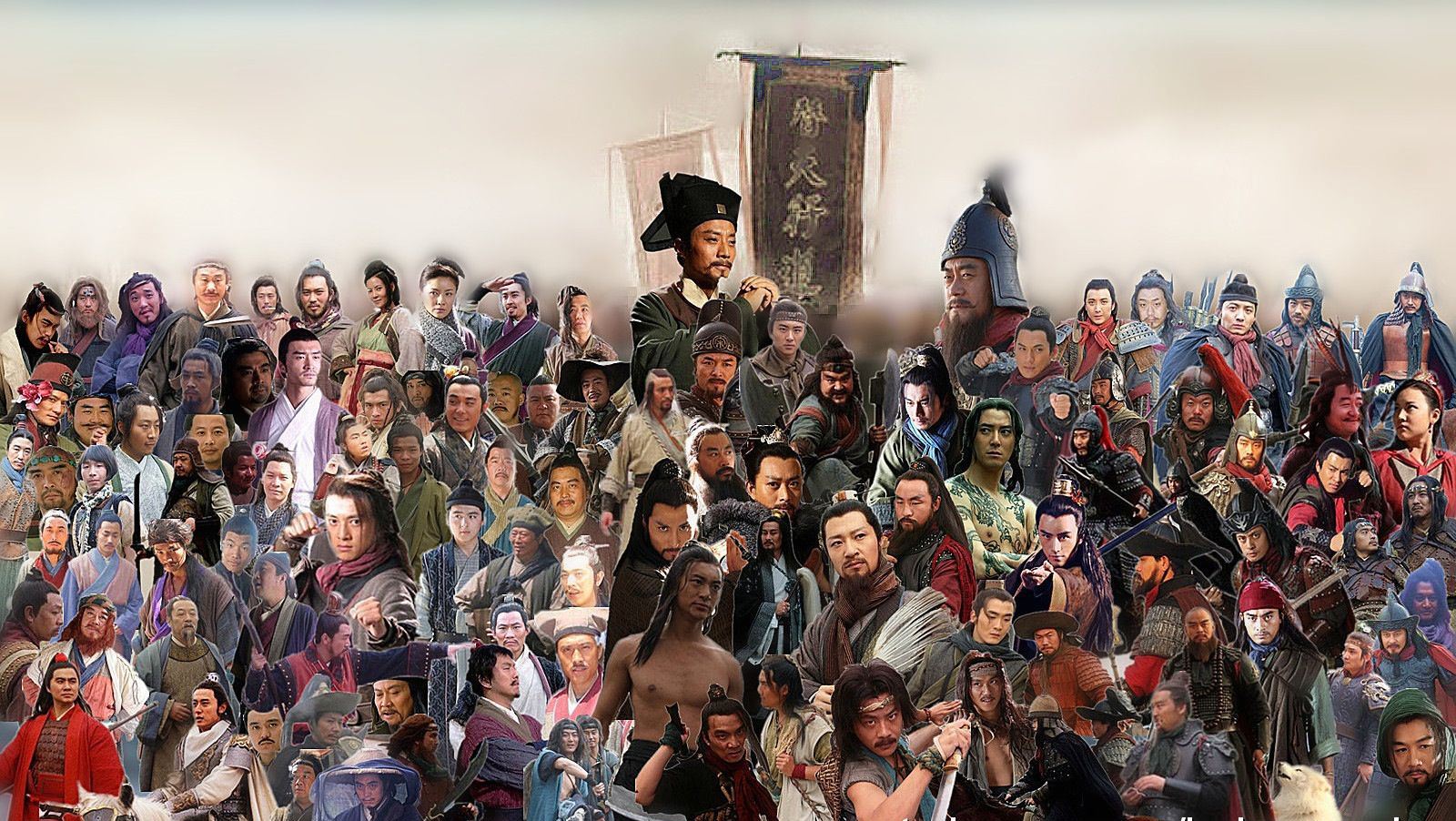
The main figures in the novel include Jiang Song and Song Wu. Jiang Song, nicknamed timely rain, can be summarized as filial piety, righteousness, loyalty and wisdom. Filial piety pointed to his behavior to his father and brother; righteousness was especially reflected in his heroic righteousness; loyalty was his unswerving belief in his country; wisdom was mainly manifested in previous wars, and the final victory depended on his excellent wisdom and excellent organizational ability.
Song Wu was a man of clear gratitude and resentment. He had excellent martial arts skills. He could not only fight tigers alone, but also be among the best in Liangshan. He was upright and had a deep understanding of the corrupt regime and officials.
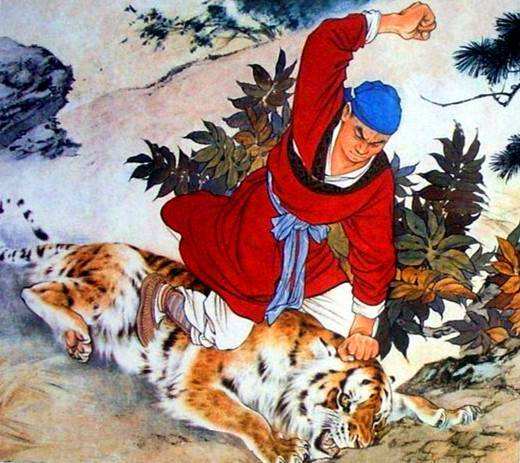
Song Wu Beat the Tiger is a classic fragment in Water Margin. Song Wu, the hero of Liangshan, went home to visit his brother and passed Jingyanggang on his way. After drinking 18 bowls of alcohol in Gangxia Inn, he staggered up the hill. After a short time, he saw a tree that said: "There are tigers in the mountain". Song thought it was not true, but to frighten people in order to let passers-by living in his inn. So he ignored it and continued to move forward. When the sun was about to set, Song came to an old temple and saw a government notice posted at the gate of the temple. After reading it, Song realized that there was really a tiger on the mountain. But he didn’t want the shopkeeper to laugh at him. So he continued to move forward. Due to the attack of alcohol, he found a large stone and lay down on his back. He was just about to fall asleep when he heard a gust of wind whistling. Then a tiger with a white forehead rushed to him. Song quickly dodged and hid behind the tiger. As soon as the tiger jumped forward, Song hid again. The tiger was in a hurry. He roared and hit Song with his tail. Song jumped away in a hurry and raised his whistle stick, and used all his strength and hit the tiger's head. After a "click" sound, the whistle stick hit the branch. Song threw away half of the stick and rode on the tiger's back. His left hand grabbed the skin on the tiger's head, and his right hand hit the tiger's head. Soon, he hit the tiger's eyes, mouth, nose and ears. With bleeding everywhere, the tiger was lying on the ground and unable to move. Song was afraid of the tiger pretending to be dead. He raised half of his whistle and beat again. Seeing that the tiger was really out of breath, he stopped. From then on, Song Wu became famous.
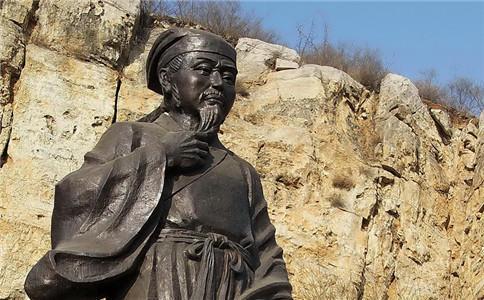
Guanzhong Luo (1330-1400), whose father was a silk merchant. At the age of seven, he began to study in school. At the age of 14, his mother died of illness, so he dropped out of school and went to Suzhou and Hangzhou to do business with his father. However, Luo was not interested in business. With the consent of his father, he went to Cixi to study with Baofeng Zhao, a famous scholar at that time. After some social changes, when he was more than 50 years old, he had a more mature view of history and life, so he completed the famous novel, Romance of the Three Kingdoms.
Romance of the Three Kingdoms describes the historical situation of nearly 100 years from the end of the Eastern Han Dynasty to the early years of the Western Jin Dynasty. It mainly describes the war, and tells the story of the mixed wars between the separatists in the late Eastern Han Dynasty and the political and military struggles among the Three Kingdoms of Wei, Shu and Wu. Finally, Yan Sima unified the Three Kingdoms and established the Jin Dynasty. It reflects the transformation of various social struggles and contradictions in the Three Kingdoms era, and summarizes the historical changes of this era, and shapes a group of heroes of the Three Kingdoms. The novel is the first chapter novel in the history of Chinese literature. It is also the first novel of literati.
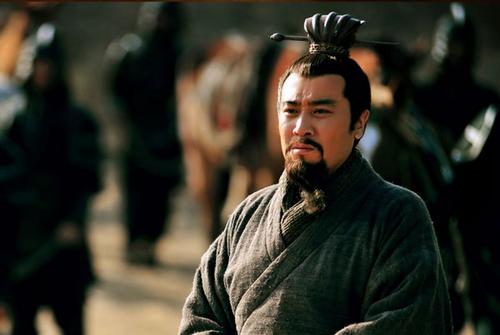
Bei Liu is one of the typical characters in the novel. After Sheng Liu, King Jing of Zhongshan in the Western Han Dynasty, he was the founding emperor and politician of Han Shu in the Three Kingdoms period. Although Bei Liu had royal blood, he has experienced the tragedy of his family and his father's death when he was a child. Forced by life as a child, he followed his mother to "sell shoes and weave mats for a career", and began to experience the hardships of life. This period of life forced by the adversity of life sharpened Bei Liu’s ambition, but also cast his character of being kind to others. Although Bei was a little short of opportunity and power, he had a noble moral sentiment and influenced his assassin. Before his death, Bei also used this to educate his son Shan Liu, that is, " Do not fail to do good even if it's small, do not engage in evil even if it's small."
This novel has created a vivid image of Cao Cao, an outstanding politician, strategist and writer. He had great talent, cherishes talents, and was generous and heroic. His complex character was not a simple addition of "traitor" and "hero", but the specified historical conditions and created the dual character of Cao Cao. On the one hand, he was treacherous, tricky, suspicious and vicious; on the other hand, he was alert, intelligent, brilliant and thirsty.
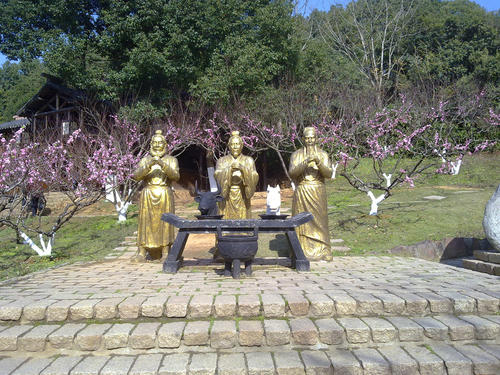
Becoming Sworn Brothers in Peach Garden is a classic segment in the romance of the Three Kingdoms. At the end of the Han Dynasty, the government was corrupt. Coupled with years of famine, people's life was very poor. Bei Liu intended to save the people. Fei Zhang and Yu Guan were willing to work together with Bei Liu. The three people agreed and chose the peach garden after Village Fei Zhang. At this time, the peach blossom was in full bloom, and the scenery was beautiful. Fei Zhang prepared the green cattle and white horse as a sacrifice, burned incense, and completed the oath. The three men recognized their brothers according to the age of the year. Bei Liu became the elder brother, Yu Guan the second and Fei Zhang the youngest. This was the famous "Taoyuan Jieyi" in the romance of the Three Kingdoms.
Journey to the West is the first romantic novel about gods and demons in ancient China. The author was Cheng’en Wu in the Ming Dynasty. Cheng’en Wu (1500-1583, 1506-1580) was intelligent, knowledgeable, and especially fond of mythology. He was good at painting, calligraphy and versatile. In the 28th year of Jiajing (1549), he moved to Nanjing and sold articles for a living. Due to the difficulties in their official career, he refused to be an official in his later years, but wrote books and completed classic works such as Journey to the West.
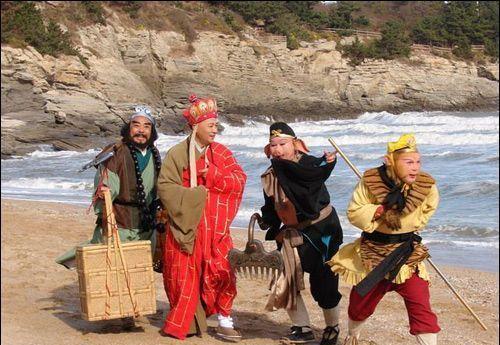
The book mainly describes the story of Monkey King, also named Sun Wukong, Tang monk, Zhu Bajie, Sha Seng and white dragon horse after he was born and made a big fuss in the heavenly palace. He traveled westward to learn Buddhist scriptures. He went through hardships and dangers, subdued demons, went through 81 difficulties, and finally, arrived in the Western Heaven to see the Buddha, and finally the five saints came true. The novel is based on the historical event of "Tang Monk getting scriptures". Through the author's artistic processing, it profoundly depicts the social reality of the Ming Dynasty. The novel is a classic work of Chinese Supernatural and demon novels, reaching the peak of ancient romantic novels. Since its publication, it has been widely circulated among the people. There are six editions in the Ming Dynasty, seven in the Qing Dynasty and thirteen in the classics.
The main characters in the novel include monk Tang, the master of the Western Heaven, and the four disciples, Monkey King, Zhu Bajie and Monk Sha. We take the monkey king as an example to analyze the character characteristics. Sun Wukong was rebellious, brave, resourceful, indomitable, daring and jealous of evil. He was intelligent, quick in thought and action. He had learned high-level magic, and could change 72 times with one breath. He had a magic weapon, the golden cudgel, which can be shrunk like a needle and enlarged like a copper stick. Wukong still had some monkey nature. He was shrewd and playful and loved to play tricks. Wukong was not afraid of heaven and earth, so he dared to fight with the sea dragon king, hells, heavens, and bet with Buddha. This showed that he was rebellious, unwilling to be bound and unconventional. His abundant vitality, fearless spirit, honest character and optimistic personality made him not afraid to bear hardships and brave to face challenges. His spirit of adventure and hardship fully showed the characteristics of a hero. But he was competitive, arrogant and impatient.
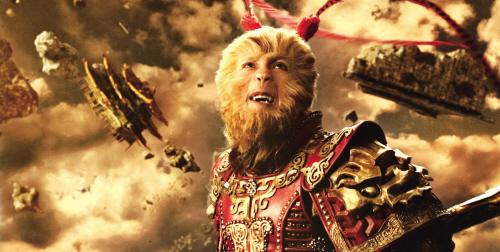
"Making trouble in heaven" is a classic fragment in Journey to the West, which mainly describes the Jade Emperor's fear of Monkey King's rebellion, luring the monkey king to heaven and making him the official charging of horses. Knowing that he had been cheated, the monkey king returned to Mountain Huaguo to fight against the heaven. King Li led his troops to capture the monkey and was defeated. The Jade Emperor had to appoint the monkey king as the "Sage of Qi Tian". The Heavenly Matriarch set a peach banquet, but did not invite the monkey king. The monkey king was furious and made a scene in yaochi and ate the golden elixir. The Jade Emperor sent troops to capture the monkey king. The monkey king was captured in a plot. Instead of burning the monkey king to death, the alchemy furnace turned into a golden eye. The monkey king was so powerful that he beat the heaven palace to pieces, and scared the Jade Emperor to flee.